
Carrier IQ is a scandal now
The furor over Carrier IQ tracking software only intensified on Thursday, as different affected parties attempted to limit public relations or potential legal damage. Apple and Verizon both essentially disavowed Carrier IQ, while Sprint acknowledged using the software/service but narrowed the scope. Meanwhile, the Carrier IQ website couldn't handle sudden traffic surges. BetaNews used a Google cached version to obtain the official statement, but later reached the site.
Android developer Trevor Eckhart instigated the Carrier IQ scandal in a blog post and YouTube video based on his investigation of a persistent process running on HTC Android phones. He uncovered Carrier IQ, which he calls a rootkit because of its stealth behavior and the amount of information/services tapped. "The application is hidden in nearly every part of our phones, including the kernel", he writes. "Carrier IQ also subverts standard operating system functionality".

Don't blame tablets for slow PC sales
This is one of the more uncomfortable years the PC ecosystem has ever endured. It started out sluggish, and never really recovered. Early on, Intel’s CEO chided market researchers who didn’t echo his call for double-digit unit growth. (Full disclosure: so did I.) AMD’s board booted its leader in part for taking much the same stand.
Slow growth alone, though, isn’t what draped 2011 in a soot-colored hue. The industry has seen its share of ups and downs. But this year is different. Because while PC sales were under-performing, shipments of these new things, media tablets, skyrocketed. Coincidence?
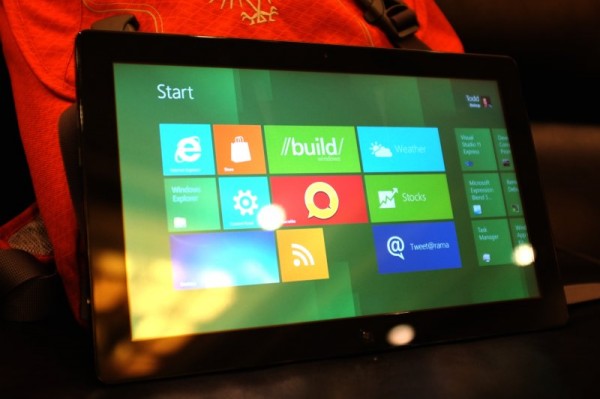
Are Windows 8 tablets DOA?
That's my question for you to ponder and to comment and debate about. Yesterday, a Forrester Research analyst proclaimed "Microsoft has missed the peak of consumer desire for a product they haven't yet released" -- it's already too late for Windows 8 tablets. He's absolutely nuts, I say. Or is he?
The analyst, JP Gownder, contends that "Windows 8 is going to be very late to the party" and Apple and Samsung tablets "will likely be into their third generation by the time Windows 8 launches". Microsoft is a late-starter to the tablet market. Meanwhile consumers have lost interest. "In Q1 2011, Windows was by far the top choice of consumers" with 46 percent US consumers pining for a tablet running Microsoft's OS. "By Q3 2011, that picture had changed dramatically...interest among consumers dropped to 25 percent". It's recipe for failure, he contends. I'm not sure what Forrester pays Gownder, but, hey, my more competent analysis is free.
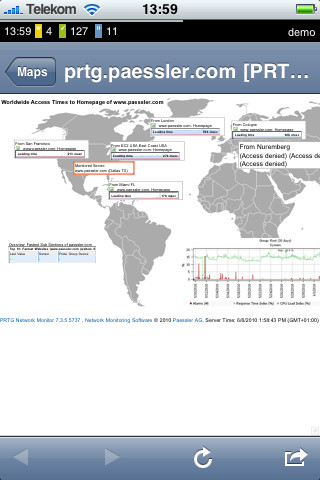
Got iPhone and administer a network? You need iPRTG 3
If you maintain a server or network, you understand the importance of being able to monitor it around the clock. There are a number of tools available that can be used to keep an eye on your network whilst on that network, but there will be numerous occasions when you are away from the office but still need to check that things are running smoothly. PRTG Network Monitor is one such network monitoring tool, but for when you are out and about you can turn to iPRTG 3 to use your iPhone or iPad to remotely monitor your network.
iPRTG enables you to view information about the state of your network and while the interface has been optimized for viewing on the screen of iOS devices, iPad users undoubtedly get a better deal, with the larger screen making it far easier to work with data. Depending on the size of your network you may choose to navigate through the app in different ways. It is possible to use network sensors as jump points, so you can, for example, quickly navigate to the device with the lowest uptime or the most free disk space.
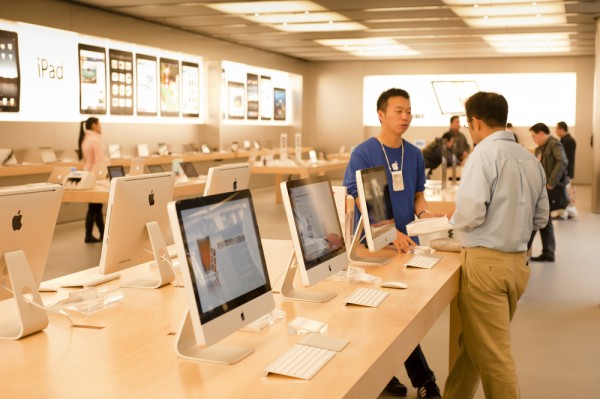
Apple is the new Dell
I sat eating lunch with coworkers when we saw the news over the wire. Dell announced the end of retail sales, taking its business direct to customers -- that was 1994. We laughed about the craziness. Compaq dominated the PC market, leveraging a huge partner network of dealers, resellers and retailers. Cutting out the middleman meant more margin for Dell, and presumably lower costs for businesses and consumers, but how would the brand maintain visibility without shelf space? Dell direct seemed destined to failure.
Succeed it did, making Dell the No.1 PC maker, based on shipments, by decade's end. Dell didn't just go direct but redefined PC distribution, manufacturing and marketing. The Austin, Texas-based company later adopted real-time manufacturing logistics that made competing operations from Compaq, HP and IBM look antiquated. While their managers guessed how many PCs to produce and ship to the channel, Dell provided component suppliers access to orders in real time, which kept the company from over-ordering, dramatically cut component costs and let customers configure exactly what they wanted. More than a decade after Dell's high (and today's subsequent low), Apple distribution, manufacturing and marketing is the envy of competitors. Both companies achieved similar supply-chain dominance, but theirs is a fascinating study of similarities and contrasts.
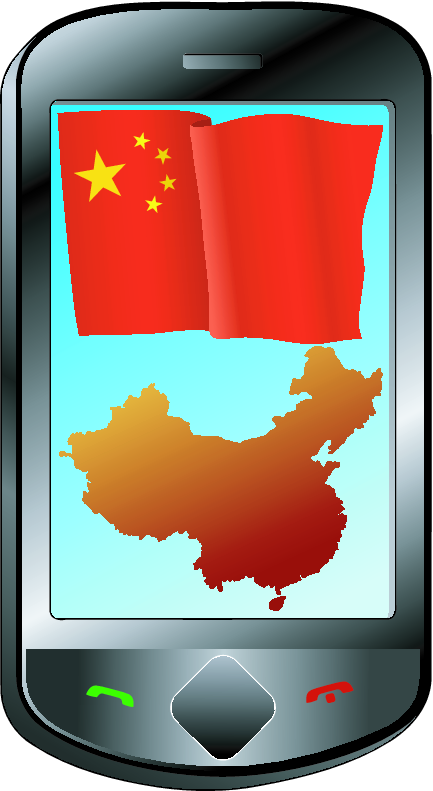
The Chinese are coming, and they're taking your smartphone
Highlighting the increased clout of the Chinese consumer in today's high-tech marketplace, research firm Strategy Analytics released results of a study Wednesday that finds smartphone shipments to China eclipsed the United States for the first time last quarter. At 24 million units, China is now the largest smartphone market in the world.
The findings show why phone manufacturers have increasingly turned their attention to the Far East. Apple began selling the iPhone in China in 2009 on China Unicom, and other manufacturers increasingly are looking to the country and its TD-SCDMA and TD-LTE homegrown networking technologies.

Can 'Buffy' slay Facebook Phone rumors?
Rumors persist over the mythical "Facebook Phone". This time it's Ina Fried and Liz Gannes of All Things Digital, claiming sources say the social network is working with HTC on an Android powered device -- codenamed "Buffy" -- to launch in about 12 to 18 months. It deeply integrates Facebook services into the experience, and relies on HTML5 as a platform for applications.
But Fried's and Gannes' report may not be accurate. In a "He Said, She Said" response, Inside Facebook followed up saying its own sources call Buffy a "trainwreck". Reporter Kim-Mai Cutler says that the phone would have a host of issues, including always being one step behind the latest version of Android due to the deep customization that Buffy would require.

Okay, let me get this straight, Apple is gonna be No. 1 PC vendor next year with 5% market share?
US Thanksgiving is this Thursday, and their friends across the ocean have something for the Apple Fanclub of bloggers and journalists to be grateful for: Canalys predictions that the Mac maker will be the No. 1 PC vendor next year -- gasp, possibly during holiday 2011. "HP and Apple will fight for top position in Q4, but Apple may have to wait for the release of iPad 3 before it passes HP", Canalys analyst Tim Coulling says.
It's an amazing proclamation, considering that IDC put Mac global share at a puny 5.2 percent in third quarter. You'll read lots of gleeful headlines today about how Apple is going to strip HP's britches, then leap to the top spot. Canalys' magical prediction is all about counting. Is a tablet a PC? The UK-based analysis firm says yes, and adding iPad to the mix pulls Apple up from the doldrums to the stratosphere.

iPhone overtakes BlackBerry as top workplace smart phone
Research In Motion's BlackBerry has lost its long held position as the top smartphone among business users, a new study finds. Mobility services company iPass found that the iPhone is now the most commonly used smartphone in the workplace, with the Android platform also showing impressive growth.
The survey of 2,300 workers found that 45 percent use iPhones, up from 31.1 percent a year ago. BlackBerry usage fell to 32.2 percent from 34.5 percent a year ago. Android now is 21.3 percent of the market, up from 11.3 percent a year ago. Overall, RIM market share isn't collapsing as much as other platforms are gaining acceptance in the workplace.
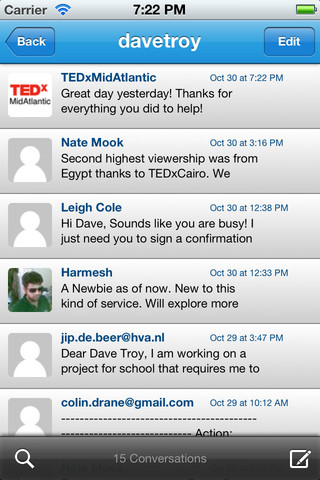
Shortmail makes iOS debut
Shortmail is now available for iPhone, tapping into capabilities from iOS 5. The service brings Twitter concepts to email, limiting messages to 500 characters (It's 140 for Twitter). Startup 410Labs took the wraps off cloud service Shortmail in June. The iOS app debuted on November 16.
On the web, users can claim their shortmail address by logging into their Twitter account. "Using the Twitter integration in iOS 5 (which is required), we instantly convert your Twitter accounts into Shortmail accounts. No hassle, no signups, no passwords. It 'just works'", says 401Labs CEO Dave Troy.

5 mobile apps for veterans
Veteran's Day is a special day of reverence for many Americans, it's the day when we pay our respects to our country's military service members for the demanding, difficult, and often painful work they have done for our country.
Today, we compiled a list of a few mobile applications that are of special interest to our armed services veterans.

Android share rises (again), iOS still stagnant
The US smartphone market has become so consistent -- Android gains, iPhone is stagnant -- that Nielsen has started revealing other interesting trends, as it did today. First, for the fanboys: Android share among US subscribers 13 or older was 43 percent at the end of third quarter, up from 39 percent at the end of June. Meanwhile, iPhone is top-selling smartphone, but iOS share is stuck at 28 percent, following a trend fairly consistent since mid 2010.
Each fan group has some number to wave around: Android as top-selling smartphone OS (and continually gaining) and iPhone leading handset in its class. To fan the fanboy fires, I should point out that iOS could finally get some pick up from new US iPhone carriers C Spire Wireless and Sprint. However, some of the hottest Android phones either shipped or will ship this quarter, including 4G LTE packing Motorola Droid Razr and Galaxy Nexus on Verizon and HTC Vivid and Samsung Galaxy S II Skyrocket on AT&T. iPhone 4S lacks LTE.
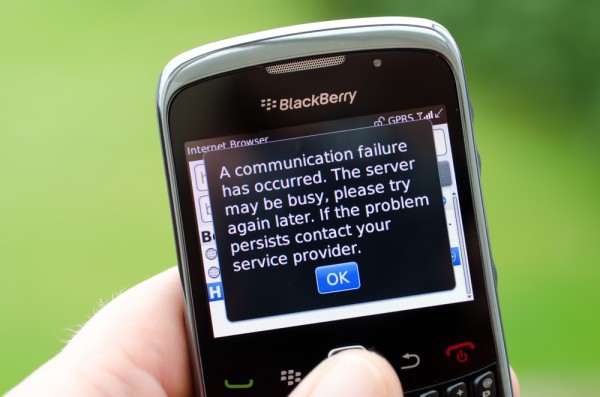
First an outage, now a lawsuit: US, Canadian Blackberry users want compensation
Research in Motion will now need to fight off class action suits in both the United States and Canada, following a four-day outage earlier this month which started overseas but quickly spread worldwide. The outage left some without email, web browsing, and instant messaging for several days.
RIM apologized for the issues and offered free apps and enterprise tech support for its customers' troubles, but that was not enough. The US effort was filed on Wednesday in the US District Court for the Central District of California in Santa Ana, and the Canadian suit in the Quebec Superior Court. Both efforts seek class-action status.

Tablets and laptops are on a 'collision course'
But you knew that already, right?
Today, DisplaySearch issued the most unusual of tablet forecasts -- one that looks at the totality of the market and takes Windows into consideration. Gartner and IDC use a separate "media tablet" category for Android tablets and iPad, based on the operating system, choosing to classify "Tablet PCs" running Windows as personal computers. DisplaySearch has more sensibly made the designation around processors -- ARM and x86 -- which better defines the market for the future, and isn't the future what a forecast is all about?

Is 'Hawaii 5-0' one long Microsoft commercial?
Product placement is the ultimate in marketing. It's relatively cheap -- that's assuming the company pays anything at all -- the value worth millions in potential sales and/or savings paying for actual advertising. Why pay for a 30- or 60-second TV commercial when your product can be part of the show? Or on CBS cop drama "Hawaii 5-0" be one of the stars of the show?
I've been pondering writing about Microsoft's product placement since 5-0's first season aired (season two started last month). The program's actors routinely use the company's big-ass table -- that is Surface -- and Bing to search from Windows Phone. But this week, in episode "Ma'ema'e", Windows Live SkyDrive joins the active placement of Microsoft products -- or cast, if you will.
